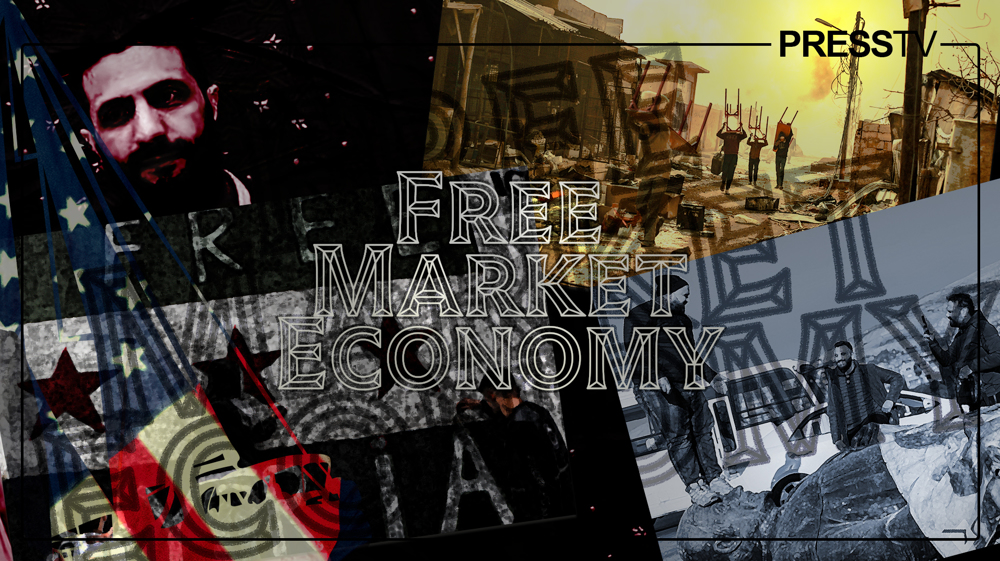Supply line sabotage: Why Israel’s terrorism in Lebanon will backfire on West
By Musa Iqbal
In an unprecedented act of terrorism, the Zionist regime carried out widespread device detonations across Lebanon over the course of two days this week.
The reckless terror attacks injured thousands and killed dozens, including children and civil workers, sparking outrage worldwide.
Devices such as pagers, walkie-talkies, and solar panels detonated simultaneously across the Arab country, starting from the suburbs of Beirut, killing, maiming, and dismembering Lebanese citizens.
The mouthpieces of the child-murdering regime in Tel Aviv have gone out of their way to claim that the attacks targeted members of the Hezbollah resistance movement.
However, this was not a military operation but cowardly terror attacks orchestrated to instill fear and anxiety in the everyday lives of the Lebanese people.
‘Gory and gruesome’: Victims, families and doctors on pager blasts in Lebanon
— Press TV 🔻 (@PressTV) September 20, 2024
By @hibamoradd https://t.co/e6KMZzR1mI pic.twitter.com/NKXBOPDAte
At the time of the explosions, Lebanese citizens were engaged in mundane activities—driving, working in hospitals, and grocery shopping. The detonation of their devices during these routine tasks demonstrates that the goal was not to strike Hezbollah but to foment widespread fear, panic, and chaos.
It remains unclear how Israeli regime agents gained access to these devices, imported from a European country in the thousands under the label of a Taiwanese firm.
However, it is evident that distributors and producers within the supply chain must have collaborated with Tel Aviv. Standard quality assurance processes ensure products are tamper-proof and safe for consumers.
The implantation of explosives into everyday communication objects used by Lebanese citizens suggests that something within the production process was compromised.
Gold Apollo, a Taiwanese company responsible for producing the targeted pagers, has shifted the blame to a Hungarian firm, BAC CONSULTING KFT, which it claims was responsible for the manufacturing.
In a statement, Gold Apollo noted that according to the cooperation agreement between the two sides, it authorized BAC to use its brand trademark for product sales in designated regions, but the design and manufacturing of the products were solely the responsibility of BAC.
Taiwan has been strengthening its ties with the US in recent years, despite officially adhering to the One China Policy, which recognizes Taiwan as part of the People's Republic of China.
Over the last few years, American military and intelligence personnel have been active in Taiwan, and the US has provided millions of dollars' worth of advanced weaponry to the Taiwanese government.
Hungary, a member of the European Union, has been largely hostile to the Palestinian cause and a supporter of Israeli occupation and its genocidal war against Palestinians in Gaza, which has so far killed more than 41,300 people, mostly children and women.
Either country, or both, could have collaborated with the Zionist regime once it became known that pagers used by Lebanese people, including Hezbollah, were being sourced through these vendors.
BAC Consulting is owned by British citizen Cristiana Arcidiancono-Barsony, who has denied responsibility for the Lebanon bombings after a massive global outcry.
Given Britain’s long history of colonialism and collaboration with Zionist forces and the relationship between Zionist tech and tech honchos such as Elon Musk and Mark Zuckerberg, there is a compelling case that Western technology cannot be trusted.
In fact, this technological terror plot by the Israeli occupation has escalated tensions between the imperialist West and the independence-seeking Global South.
Now, with the push of a button, the Israeli regime—or any entity granted access to this technology—can assassinate anyone via market-distributed technology.
One of imperialism's key tools is market control: control over what is sold, produced, and licensed. If Western technology is capable of indiscriminate destruction, many will begin to question whether it’s time to step away from US-aligned tech altogether.
The Israeli regime celebrates these terroristic short-term "gains" as a military achievement, but in the long term, they have eroded trust in Western technology and products.
If the West controls supply chains and can detonate devices at will, as seen in Lebanon, can economic cooperation with the West truly be considered voluntary? And after Israel’s latest terrorist actions, is Western tech even worth purchasing?
‘Declaration of war’: Snippets from Hezbollah leader’s speech following device blasts
— Press TV 🔻 (@PressTV) September 19, 2024
By Alireza Hashemihttps://t.co/GxdjgvK1cs
Notice how, when countries from the Global South opt to buy Chinese, Russian, or Iranian products or welcome cooperation from other US adversaries, American politicians and media swiftly condemn these moves, decrying the spread of so-called “Chinese influence” in foreign markets.
The same dynamic can be observed with the ongoing trend of de-dollarization, prompting figures like Donald Trump to threaten "100 percent tariffs" on countries moving away from the US dollar in trade.
What does this all mean? Simply put, the US goal is to reassert itself globally, primarily through market and dollar dominance, as a means of controlling nations at a widespread level. Controlling a nation's markets is often more effective than directly influencing politicians.
However, American imperialism cannot have it both ways. Technological terrorism, exemplified by Israeli detonators in pagers, and economic coercion, such as American sanctions, are eroding trust in the West.
For decades, American capitalists and their political representatives have argued that buying American goods and trading with US firms is voluntary and beneficial for participating nations.
Now, as American hegemony declines, the US is scrambling to maintain its influence, as countries turn to alternative models or economic alliances like BRICS and SCO in pursuit of fairer paths to development.
Governments in the Global South, especially those adversarial to the Israeli regime, are likely investigating whether they have compromised technology in their own markets.
It is well known that American tech is frequently used for surveillance—WhatsApp is believed to have played a role in the assassination of Hamas leader Ismail Haniyeh by revealing his location in Tehran.
This development comes as alliances such as BRICS are pushing for their own global currency, and member countries—particularly India, China, Russia, and Iran—have committed to local manufacturing whenever possible, ditching the US dollar.
Iran, for instance, developed its own COVID-19 vaccines due to the West's long history of medical terrorism, which even extends to American citizens themselves.
Leader of the Islamic Revolution, Ayatollah Seyyed Ali Khamenei, banned the import of Western COVID-19 vaccines, citing a lack of trust. He stands vindicated yet again.
Less than a century ago, the US government conducted the Tuskegee experiments, poisoning Black Americans with placebos or experimental treatments. Johnson & Johnson, the US company behind a COVID-19 vaccine, also participated in the infamous Agent Orange experiments, disfiguring prisoners with chemical residues.
China and Russia, too, have developed their own technology to protect against American surveillance efforts. For example, Huawei phones, a Chinese product, are banned in the US due to fears of “Chinese spying.”
Israel’s vicious scheme for Lebanon: Mass communication device explosions pic.twitter.com/9x11lDBsUJ
— Press TV 🔻 (@PressTV) September 18, 2024
In reality, these phones were developed as a safeguard against US tech giants like Apple attempting to dominate Chinese markets, which would leave China vulnerable to American attacks and surveillance.
We are witnessing the beginning of a long, negative reaction against Western technology. In an increasingly competitive global market, where US influence is waning, Israel’s murderous gambit of rigging devices tied to US supply chains will ultimately backfire and that is for certain.
Governments, corporations, and organizations will seek out technology that cannot be compromised, particularly by threats as dangerous as the Zionist regime, which collaborates with US intelligence.
This terroristic plot will be remembered not only for its moral repugnance but also for its economic repercussions. It signals another bell toll in the decline of US imperialism.
As American influence fades and powers like China, Russia, and Iran offer more attractive alternatives, the world will undoubtedly gravitate toward anything but America.
Musa Iqbal is a Boston-based researcher and writer with a focus on U.S. domestic and foreign policy.
(The views expressed in this article do not necessarily reflect those of Press TV.)
VIDEO | Press TV's news headlines
VIDEO | Iran honors top Science Olympiad medalists
VIDEO | Austrians arrested at Gaza protest in Vienna
10 killed in bus crash in western Iran
VIDEO | One-man-band journalism with Civili
5 Israeli forces killed as Palestinian fighters face up to regime’s war machine
VIDEO | An insider's view of the country: Persian Tahini, Royan in Mazandaran
VIDEO | Israeli settler killed during strike against Tel Aviv; fresh aggression targets Yemen’s capital










 This makes it easy to access the Press TV website
This makes it easy to access the Press TV website